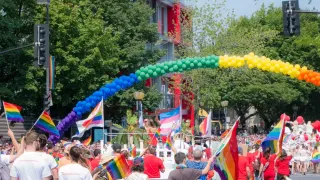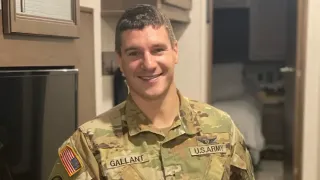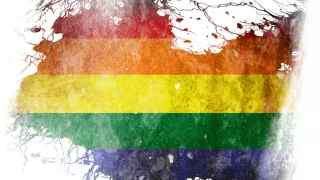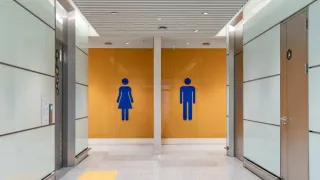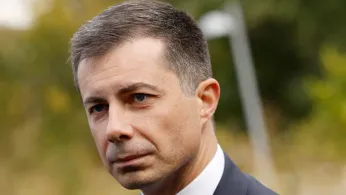
Aug 6
Pete Buttigieg Clarifies Comments on ‘Fairness’ in Transgender Youth Sports Debate
READ TIME: 3 MIN.
The participation of transgender youth in school sports remains one of the most polarizing topics within U.S. politics and culture. In recent weeks, former U.S. Secretary of Transportation and prominent Democrat Pete Buttigieg addressed the subject, seeking to clarify his stance after comments that sparked both support and criticism from across the political spectrum .
During a widely discussed NPR interview, Buttigieg acknowledged that "most reasonable people would recognize that there are serious fairness issues if you just treat this as not mattering when a trans athlete wants to compete in women's sports." He further noted that parents concerned about their children’s opportunities in athletics "have a case." However, Buttigieg cautioned against politicizing the issue, asserting that “decisions should be in the hands of sports leagues and school boards and not politicians in Washington trying to use this as a political pawn” .
Seeking to clarify his position, Buttigieg reiterated that the core of the issue lies in balancing the well-being of transgender youth—one of the smallest and most vulnerable minorities—with legitimate concerns raised by families and communities. “We’re talking about one of the smallest, as well as one of the most vulnerable minorities in this country and in the world,” Buttigieg stated. “In order to bring people together on this, we also have to take everybody seriously, including parents who have questions” .
Buttigieg argued that the diversity of sports and contexts—ranging from chess to weightlifting and from middle school to the Olympics—means that a one-size-fits-all policy is inappropriate. “Chess is different from weightlifting, and weightlifting is different from volleyball and middle school is different from the Olympics,” he explained, concluding that “those questions should be handled by communities and by sports leagues and not by politicians” .
Buttigieg’s comments arrive as the Trump administration continues to enforce federal bans on transgender women and girls participating in women’s sports teams, a policy that has provoked legal challenges and widespread debate . According to NCAA President Charlie Baker, there are currently fewer than ten transgender athletes competing among more than 500,000 college athletes nationwide, highlighting the relatively small scale of the issue at the collegiate level .
The scientific landscape remains complex. University of Washington endocrinologist Dr. Bradley Anawalt explained in a PBS NewsHour segment that while performance gaps between cisgender and adult transgender women narrow after several years of hormone therapy, they do not disappear entirely. For example, in military fitness tests, trans women’s running times were similar to those of cisgender women after two years of hormone therapy, but their push-up scores remained higher over four years .
For many LGBTQ+ advocates, Buttigieg’s approach—acknowledging the lived experiences and vulnerabilities of transgender youth, while also validating community input—offers a pathway toward more inclusive and less divisive conversations. The Human Rights Campaign and other advocacy organizations have long argued that blanket bans on transgender athletes are discriminatory and increase the risk of social isolation and mental health challenges for transgender youth. They contend that policies should be based on evidence, fairness, and the well-being of all students .
At the same time, Buttigieg’s remarks reflect an evolving Democratic position. Early in his administration, President Joe Biden issued an executive order affirming that “children should be able to learn without worrying about whether they will be denied access to the restroom, the locker room, or school sports” . While Democrats remain broadly supportive of transgender inclusion, recent comments by Buttigieg and others suggest a willingness to engage with the fairness debate without resorting to exclusionary policies.
As the conversation continues, Buttigieg’s call for local decision-making and respectful dialogue underscores the need for solutions that affirm the dignity of transgender youth while addressing the legitimate concerns of all participants in school and community sports.
